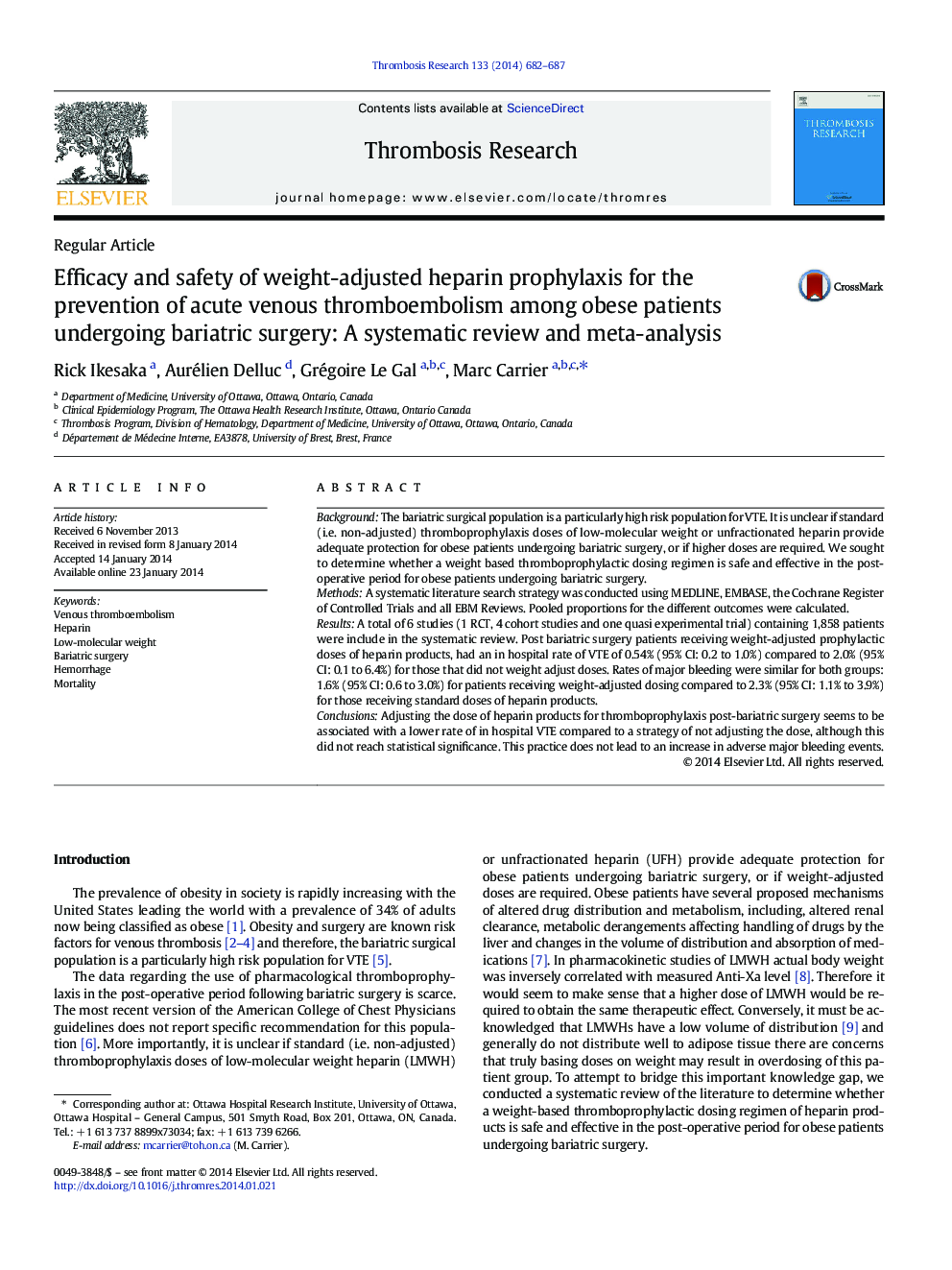| Article ID | Journal | Published Year | Pages | File Type |
|---|---|---|---|---|
| 6001426 | Thrombosis Research | 2014 | 6 Pages |
BackgroundThe bariatric surgical population is a particularly high risk population for VTE. It is unclear if standard (i.e. non-adjusted) thromboprophylaxis doses of low-molecular weight or unfractionated heparin provide adequate protection for obese patients undergoing bariatric surgery, or if higher doses are required. We sought to determine whether a weight based thromboprophylactic dosing regimen is safe and effective in the post-operative period for obese patients undergoing bariatric surgery.MethodsA systematic literature search strategy was conducted using MEDLINE, EMBASE, the Cochrane Register of Controlled Trials and all EBM Reviews. Pooled proportions for the different outcomes were calculated.ResultsA total of 6 studies (1 RCT, 4 cohort studies and one quasi experimental trial) containing 1,858 patients were include in the systematic review. Post bariatric surgery patients receiving weight-adjusted prophylactic doses of heparin products, had an in hospital rate of VTE of 0.54% (95% CI: 0.2 to 1.0%) compared to 2.0% (95% CI: 0.1 to 6.4%) for those that did not weight adjust doses. Rates of major bleeding were similar for both groups: 1.6% (95% CI: 0.6 to 3.0%) for patients receiving weight-adjusted dosing compared to 2.3% (95% CI: 1.1% to 3.9%) for those receiving standard doses of heparin products.ConclusionsAdjusting the dose of heparin products for thromboprophylaxis post-bariatric surgery seems to be associated with a lower rate of in hospital VTE compared to a strategy of not adjusting the dose, although this did not reach statistical significance. This practice does not lead to an increase in adverse major bleeding events.
